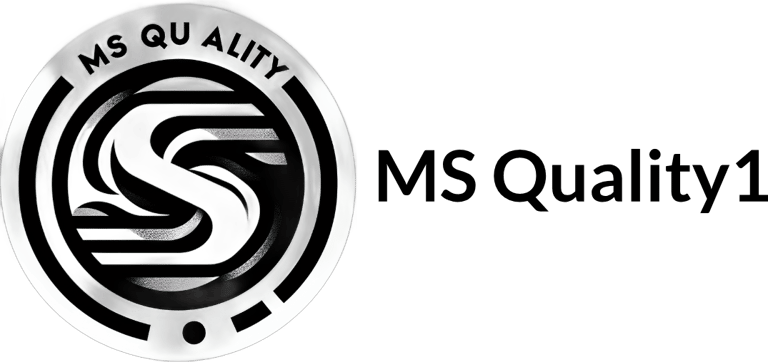Leading Through Crisis: Reframe and Realign
In times of crisis, social impact leaders rise to the occasion. As we face unprecedented challenges in 2025, it is crucial to reframe our perspectives and find opportunity and innovation within adversity.
NON PROFIT CRISIS
By Bridget Snell, Founder & President, Fractionals for Impact
2/26/20255 min read


📉 The news is terrible all around. Social institutions are collapsing, public servants are losing their jobs, and the needs of people living in poverty and insecurity are being wildly ignored.
Acknowledge the Crisis but Emphasize Leadership and Possibility
We are at another critical inflection point for the international development sector. It is these moments where it is critical for CEOs and Boards of Directors to not just manage the crisis but to take bold actions to deliver us to our next stage of evolution in the international development sector.
Now, some might claim this is not the moment to look at what positive outcomes can emerge from the current crisis. In fact, I expect many will claim that this is a form of “toxic positivity." And yet, as an executive with 20 years’ experience working for Oxfam and Save the Children (See: About Me), I find it helpful to remember that we have worked through tough and even dire times before and that sour lemons can make sweet lemonade.
As Adama Coulibaly writes in his blog, Positive Minds, “A crisis is both a test and an opportunity. [It] can extinguish the flame of INGOs or reignite it to burn brighter than ever.
Shift Perspectives
💡The Financial Crisis or The Risk Management and Fiscal Responsibility Moment
My first crisis experience in the sector was the 2008 Global Financial Crisis. The crash of the housing and banking markets led to a 16% drop in funding for the aid sector. Non-profits were light on cash and many were overly invested in the financial markets. Many non-profits, even those with the most funding, were gravely concerned about their survival. After the immediate shock, we learned and changed some important practices. For most, we improved financial management and controls, established more robust cash reserves, instituted risk registers, and managed rolling plans and budgets. We became more fiscally responsible and, in fact, weathered the crisis better than most business organizations.
💡The Safeguarding Crisis or The SAFE Moment
The next crisis hit us differently. The Safeguarding Crisis of 2018 put into question the reputation of humanitarian and development organizations – asking how we could possibly allow sexual predators and pederasts to move freely within our organizations. After the immediate shock and media barrage, we learned. We established independent oversight, became more publicly accountable, and established much-needed whistleblowing mechanisms for our staff, partners, and program participants. We became safer organizations.
💡The Great Covid Resignation or The Great Career Migration
A little over a decade after experiencing the first crisis, we faced the global pandemic. The pandemic led to worker furloughs and layoffs across the sector. And much like with Covid, we are once again compelled by external forces to rethink how we organize ourselves in order to navigate this moment effectively. Throughout the pandemic, we innovated and adapted as a sector; embracing remote work, instituting safe work practices and leveraging digital workplace advancements. Staff made constructive moves to other organizations or, for those brave enough, built their own.
For me, reframing the Covid moment on a personal level was important. While the media proclaimed it The Great Covid Resignation, it was the Great Career Migration for many of us. The crisis created conditions to take my experience, expertise, and wisdom from one social impact organization where I faced stagnation and move it to another. I took on a new role with renewed purpose and commitment to the mission. Without the opportunity of remote work, I, and many others, could not have made such a significant career move. The crisis (or moment) created a needed inflection point 15+ years in my career: where can I be most productive and have the most significant impact? It propelled me forward – I made a move and am better for it.
Move Forward with Intentionality
The reframing of challenging moments matters.
Now, you might say that the prior crises, Financial, Safeguarding, and COVID-19, did not impact the international development sector at the same scale and intensity. In the Crisis of 2025, the external force working against us today is the US Government; the same institution that would have historically structured bailouts and loans to bridge the crisis.
And yet, like Covid, we are pressed by external events to consider how we organize ourselves differently to move through this moment. We need a reframing. We need to find the nuggets of innovation and creativity that already exist in our thinking to navigate us to the future.
🛠️ Crisis 2025 (out of control) or Re-Alignment 2025 (within our control)
The leadership questions we need to answer for ourselves, and our organizations are:
What is in our control at this moment?
How do we gain greater focus on our core mandate mission?
How do we move intentionally to create new models?
How do we align people, money and work to new models and ways of working?
Simple questions. And yet, are these the questions we ask and act upon? With no safety nets provided by the government or philanthropists – there is no time like the present to move with intentionality and purpose to right-size and adopt new models.
So, what new models are waiting to emerge?
Digital modernization. Institutions, big and small, must find the focus to adopt new technology architectures and secure your data! As the sector contracts, we can better manage costs and open new funding streams by becoming truly digital-first.
Harmonized Data. We can master and use the data within our organizations better. If we secure it, harmonize it and efficiently share it – our collective impact can be more robust.
Local Decision-making. Decision making is most effective when closest to the place of impact. Now is the time, local leaders are ready to lead.
Collective impact. We can evolve the design and evaluation of social programs where local coalitions and networks are the primary agents of change.
Fractional leadership. Reduce executive costs, maximize the total value of the workforce and orchestrate sector-wide transformation by rethinking the c-suite.
🔥While acknowledging the pain, hurt, fear, and confusion, let's reframe the moment.
In the coming weeks and months, let us make connections that allow us to see the possibilities in this moment. Let’s embrace our resilience and creativity. We need to change how we work as public servants and social impact leaders so we can achieve our mission with or without the funding or institutions we have come to expect.
My colleagues and I at Fractionals for Impact are working to make these changes happen. Join us. Come see what we’re doing:
E-mail: info@fastxpartners.com
LinkedIn: FASTX Partners LLC: Overview | LinkedIn
Website: www.fastxpartners.com
Future Blogs
Reducing Executive Overhead through Fractional Leadership: How to reduce executive cost and leverage strategy expertise to orchestrate transformative changes in the sector.
Realigning Purpose in a New Global System: How to focus resources on your organization's unique value proposition within a broader global system and innovate for greater impact.
Responsible Dis-Investment to Empower Local Actors: How to responsibly move out of non-core work and start shifting funding to local actors and empower communities
Finding Efficiency and Effectiveness in Digital-First Practices: How to accelerate your organization's move to become a digital-first organization and achieve more impact more efficiently.
References:
📰 Headline: Trump Calls Directly for Closure of U.S.A.I.D.
📰 Headline: ‘Difficult decision’: USAID funding freeze leads to half of Boston health firm staff to be laid off
📖 Article: Deconstructing the (Not-So-Great) Nonprofit Recession
📰 Headline: Oxfam loses 7,000 donors since sexual exploitation scandal
📖 Article: Oxfam released from supervision by watchdog after Haiti scandal reforms
📖 Article: The Great Recession did not Start with the Pandemic
📖 Article: How the COVID-19 Pandemic Prompted More People to Change Jobs
